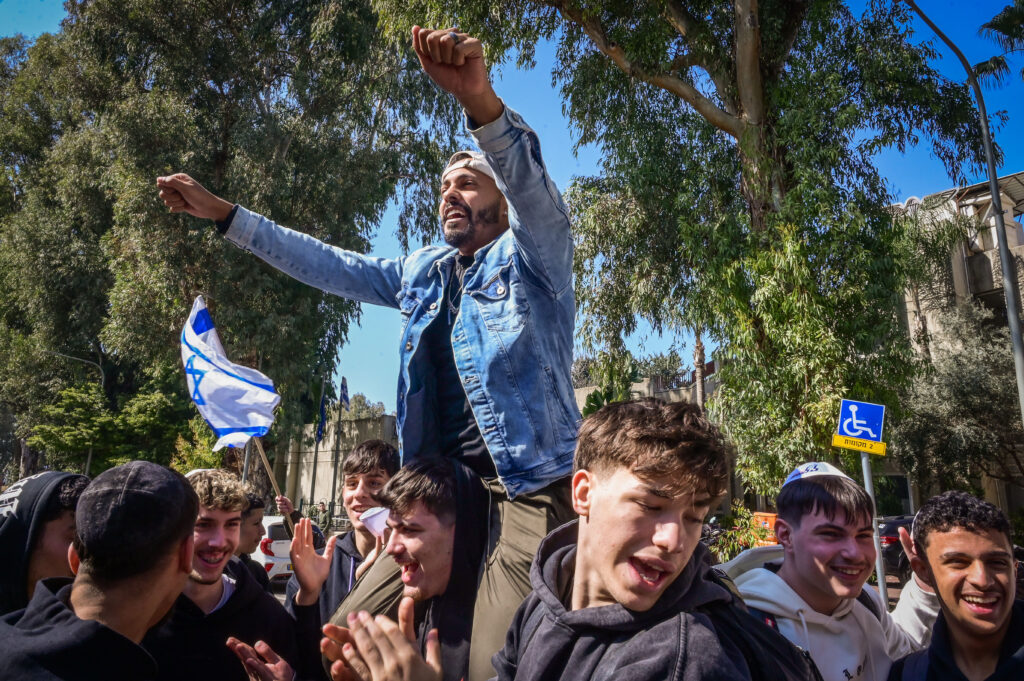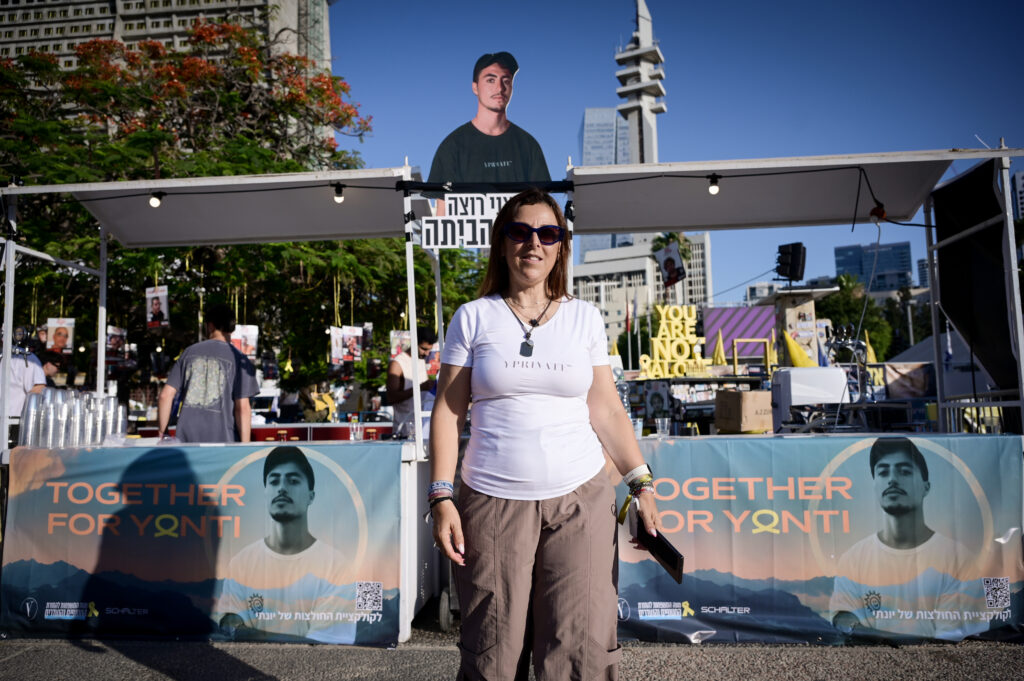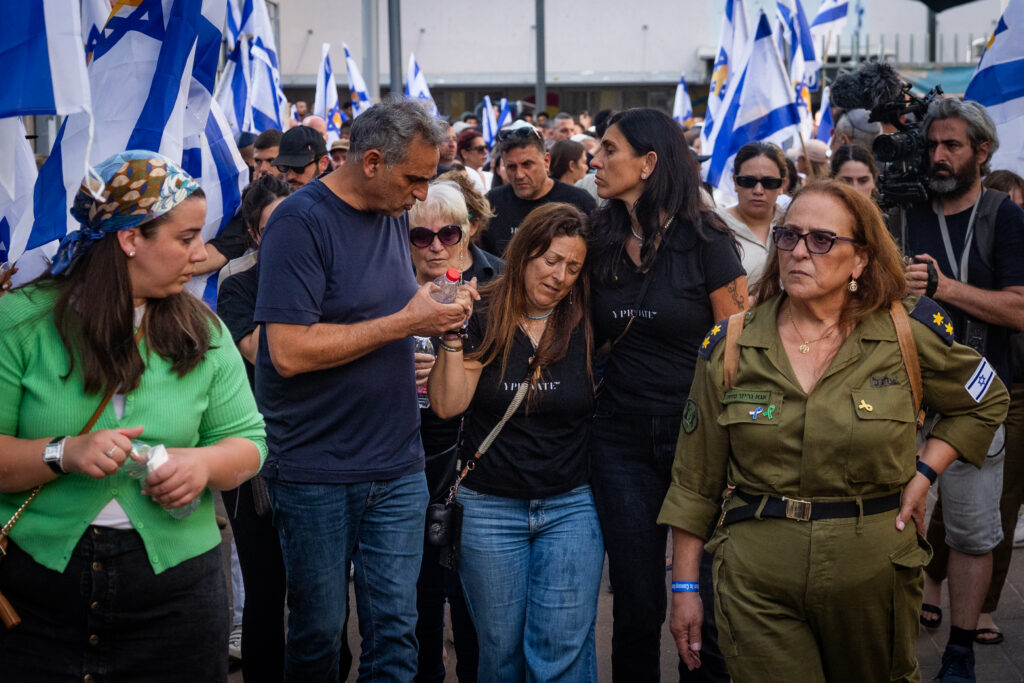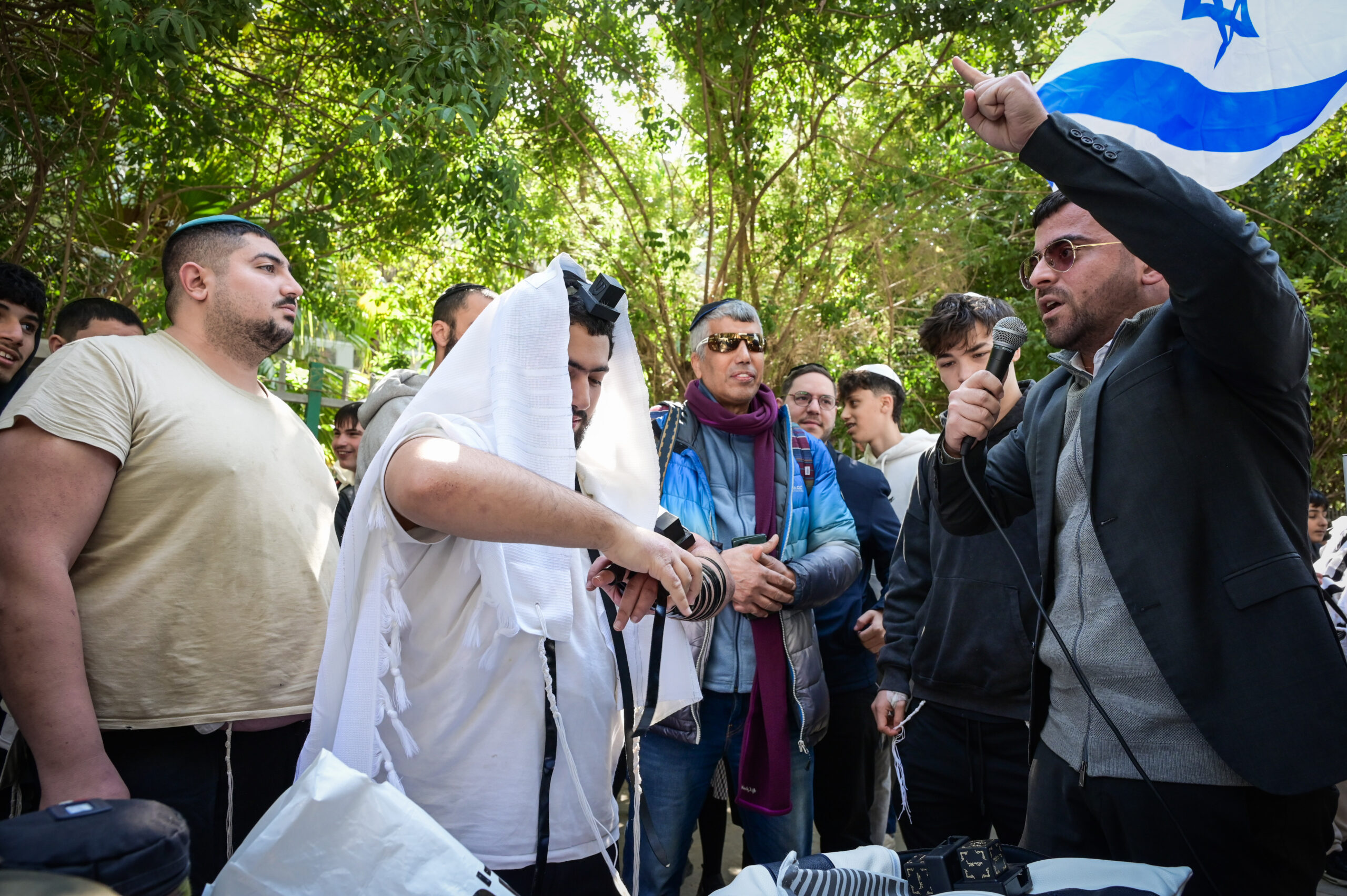In the hallways of Israel’s secular high schools, an unexpected revolution is unfolding. Students are arriving early, not for extra study sessions or sports practice, but to wrap leather straps around their arms in fulfillment of the biblical commandment to don tefillin—phylacteries containing sacred Torah verses that observant Jewish men wear during morning prayers.
The phenomenon has ignited fierce debates between students, parents, and school administrators, revealing a striking generational divide: while many older secular Israelis recoil from their children’s embrace of Torah observance, younger Israelis are hungering for authentic connection to their Jewish heritage in unprecedented numbers.
“After October 7th, there were no classes for about two months,” explains Oral Malik, an 18-year-old senior at Ohel Shem High School in Ramat Gan. “When we returned to studies, I thought about doing something for the entire school that would strengthen everyone. Something that would also help the soldiers and the hostages in Gaza.”
THIS. IS. ISRAEL.
— Dov Lipman (@DovLipman) March 5, 2025
A controversy brewed when a principal in Ramat Gan didn’t allow a student to put on Tefilin on the school campus.
“Secular” students throughout Israel responded by putting on Tefilin at their schools.
(The principal in Ramat Gan apologized and students there… pic.twitter.com/eG6Zqw0AqD
His solution was a tefillin station—a simple stand where fellow students could perform the daily mitzvah of binding the small black boxes containing biblical passages to their foreheads and left arms, a practice that connects the mind, heart, and action in service to God.
A Biblical Commandment Finds New Urgency
Tefillin, derived from the Hebrew word for prayer, represent one of Judaism’s most visible and foundational commandments. Based on the Torah’s explicit instruction in Deuteronomy, the mitzvah transforms abstract faith into physical reality. For many Jewish men, putting on tefillin each morning serves as a spiritual anchor—a moment of connection with the Divine before facing the day’s challenges.
But in Israel’s largely secular education system, such displays of Torah observance have long been relegated to the margins. Until now.
Afik Ben David, a 16-year-old from Sha’ar Ephraim, invested 1,500 shekels of his own money to establish a tefillin station at Dror High School. His motivation was deeply personal—the daily struggle of observant students in secular schools to fulfill their religious obligations.

“I wake up at 7:30 AM to catch the school bus, and sometimes I don’t have enough time to get organized, so I don’t have time to put on tefillin in the morning,” Afik explains. “I saw that many other kids want to put on tefillin but can’t because of timing issues, rushing in the morning, and sometimes because it’s just easier to skip it when no one’s watching.”
The response from fellow students has surprised even the organizers. Boys who never wore kippahs, who appeared entirely secular, began approaching the stations during breaks. “I suggested to one friend that he put on tefillin during break, and he told me he doesn’t remember how,” Oral recounts. “I helped him with the straps and blessings, and afterwards he told me: I haven’t put them on since age 13. And he’s 17.”
A Generational Battle Over Jewish Identity
The student-led initiative has met fierce resistance from school administrators and many parents, leading to confiscated tefillin stands and heated confrontations that have spilled onto social media. The opposition reveals the profound generational divide over Jewish identity in contemporary Israel.
“I think there’s pressure from parents at my school,” Oral observes. “Most of the parents of students in my class demonstrate at Kaplan”—referring to the anti-government protests dominated by secular Israelis who are often hostile to religious expression. “So I can understand that there’s pressure from parents, who tell the principal: make sure my children don’t get close to Judaism, God forbid.”
The absurdity of Jewish parents actively working to distance their children from Judaism is lost on many of the older generation. Some parents have demanded that any religious activity be confined to locked rooms in remote corners of school buildings, available only at scheduled hours. The vehemence of the opposition has puzzled the students. “I don’t see a problem with putting on tefillin in public space,” Afik argues. “If LGBT people are allowed to express themselves, why am I forbidden to put on tefillin? I sit quietly outside and put on tefillin. Why should that bother anyone?”
Oral identifies what may be the real source of parental anxiety: the fear that their entire worldview might be wrong. “People aged fifty-sixty might be saying to themselves: there’s a chance I was wrong my whole life, and there really is God. But they don’t want to take that step of change in themselves, so they’re afraid that others will ask themselves questions. They’re afraid their children will become religious.”
This generational tension—secular parents panicking as their children voluntarily embrace Torah observance—has become a defining feature of post-October 7th Israeli society.
A Mother’s Mission of Faith
Parallel to the school tefillin movement, another powerful story has emerged from the war’s tragedy.
Ayelet Samerano, a secular Israeli mother, spent months believing her 22-year-old son Yonatan might still be alive after his kidnapping on October 7th. Though not religiously observant herself, she had raised a son who owned tefillin—a testament to the complex relationship many Israeli families have with Jewish tradition. When she saw his tefillin at home, she made a decision that would impact lives across the globe: “I can’t give them to someone, because maybe Yonatan will return. But I can make as many people as possible put them on.”

The next day, she brought Yonatan’s tefillin to work and approached a colleague who had never fulfilled this mitzvah. Since then, she has made it her mission to ensure that every day, somewhere in the world, someone puts on her son’s tefillin. “I became a secular Chabad emissary,” she says with a bittersweet laugh—referring to the religious outreach workers known worldwide for their tefillin stations on street corners and their dedication to helping non-observant Jews reconnect with their heritage.
Her travels took her from the Western Wall, where an American bar mitzvah boy chose to wear Yonatan’s tefillin instead of his new ones, to diplomatic meetings in Europe. To a distinguished diplomat, she offered the same choice she presents to everyone: “If he was killed, put them on in merit of his soul. If he’s alive, put them on in merit of his safe return.”
When Yonatan’s body was finally recovered from Gaza in June and laid to rest, his mother’s mission had already touched lives around the world. In her eulogy, Ayelet declared: “All this time I stood firm in the belief that you were alive. I was right—you are alive. They returned your body but your soul isn’t here. It is, and always will be, with me forever.”
An Organic Spiritual Awakening
Neither the school tefillin stations nor Ayelet’s global mission emerged from organized religious outreach. The students explicitly reject any suggestion that they are trying to pressure anyone. “I’m not trying to make anyone religious,” Oral emphasizes. “I just want to give every Jew the opportunity to put on tefillin if they choose.”
The organic nature of the movement has surprised even its participants. Oral reports that his TikTok videos about tefillin in schools have drawn responses from students across Israel, revealing similar initiatives in cities throughout the country. “I didn’t know that there are so many boys in the country opening tefillin stands,” he admits. “We’re not organized and don’t coordinate among ourselves.”
This spontaneous spiritual awakening reflects a broader transformation in Israeli society since October 7th. The brutal attacks and ongoing war have prompted many secular Israelis to reconnect with Jewish tradition, seeking meaning and comfort in Torah commandments their grandparents might have taken for granted.
Beyond the Classroom
The implications extend far beyond teenage rebellion or parental anxiety. The tefillin revival represents a fundamental question about Jewish identity in the modern state of Israel: Can a nation remain Jewish while actively discouraging its youth from Jewish practice?

For the students involved, the answer is remarkably straightforward. They see tefillin not as a burden imposed by religious authorities, but as a personal choice that offers structure, meaning, and connection during uncertain times. “Instead of kids going off to smoke with friends, I offer them something much more meaningful,” Oral argues to skeptical school administrators.
The movement’s growth suggests that many young Israelis hunger for exactly this kind of authentic spiritual engagement—one that emerges from their own initiative rather than institutional pressure. In classroom breaks once filled with smartphones and cigarettes, small groups now gather around tefillin stations, fulfilling a commandment that has sustained the Jewish people for millennia.
As Israel continues to grapple with the ongoing war and its aftermath, these young people are writing their own chapter in the nation’s spiritual story. Their quiet revolution—fought not with protests or legislation, but with leather straps and morning prayers—may prove more significant than any political movement.
The tefillin that once belonged to Yonatan Samerano continue their global journey, carried by a mother determined to keep her son’s memory alive through acts of faith. Meanwhile, in schools across Israel, a new generation discovers that the most powerful rebellion might be the return to ancient truths their parents tried to leave behind.
Sources: Mered Tefillin (Hebrew), by Shagay Abrahamoff, Olam Katan; Sivan Rahav Meir, Olam Katan, edition #1004, 8 Tammuz 5785





